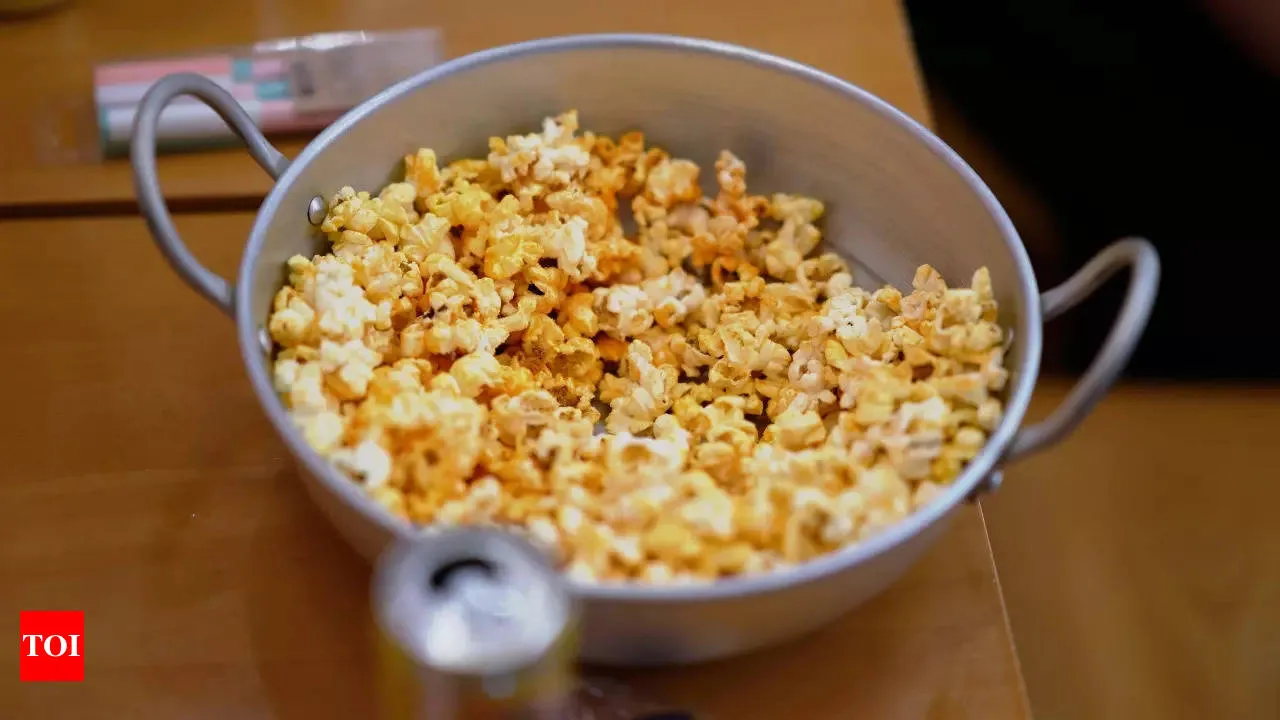Popcorn: The Aluminium Foil Method for Popping Perfection

Among the viral hacks trending over every social media is the one involving aluminium foil, which is being used to pop popcorn. It has caught the attention of popcorn enthusiasts everywhere.
Most of the viral videos have people placing corn kernels in aluminium foil, sealed tightly, and wrapped over a pan as the magic happens and turns out to be a bag of popped popcorn. But, is this really an effective method, and most importantly, is it safe to use aluminum foil for making popcorn? Let's dig deep into this trending technique and whether it really works as a practical way of enjoying your favourite snack.
Exploring the Aluminium Foil Popcorn Method
The viral reel trend is to put a few handfuls of corn kernels into a square of aluminium foil, add a little oil or butter to it and then tightly wrap that small pouch into a balloon-like package and put those pouches on the hot pan with medium heat. As soon as those pouches hit the heat from below, the kernels inside the pouches start popping, thereby inflating the foil balloon, thus imparting a popcorn-filled package through the stovetop method with a rather trendy twist in using foil.
This simplicity renders it available for use by those who are looking for an easy way to prepare fresh popcorn at home without having to resort to a dedicated popcorn machine or microwave popcorn bags.
Cooking Safety with Aluminium Foil
Aluminium foil is one of the most basic kitchen utensils that people often use for cooking, baking, or keeping food. Generally, it's rather safe to use, but its application, especially at a high temperature certainly needs to be known. In this popcorn hack, the foil will be laid directly on top of a hot pan. Such temperatures may bring this to rather high temperatures that can lead to the leaching of small parts of aluminium into the food.
Although the WHO states that the intake of aluminium from food is considered safe at normal doses, prolonged exposure to excessive amounts can be hazardous. Hence, use this method only on occasion and do not make a routine out of it by using aluminium foil all the time for high-heat cooking.
The Effectiveness of Aluminium Foil Popping
It surprisingly works well using this aluminium foil method, provided that the kernels are properly enclosed. The trapped heat inside the foil permits the kernels to achieve the right temperature for popping, so this expansion of the foil ensures that the popped corn has enough space to fluff up.
The way to go about it is the control of heat. It will burn kernels if set high and result in uneven popups if too low. It, however, would do best to heat up the pan over medium heat and occasionally shake it for even popping the kernels.
Benefits and Disadvantages of Using Aluminium Foil for Popcorn
Benefits:
- Portability: You can pop popcorn everywhere if you have a heat source, oil, kernels, and aluminium foil.
- Mess-Free: The foil acts as a container so you don't need extra pots or machines used in popping the popcorn to be cleaned.
- Visual Appeal: Seeing the foil puff up while the popcorn is popping is an enjoyable and exciting affair, especially for kids.
Disadvantages:
- Heat Safety: Aluminum foil heats up very quickly and could be tough to work with unless you have heat-resistant gloves.
- Health Issues: Frequently heating something may cause a tiny amount of aluminium to transfer to the food, which could be a health hazard if done repeatedly.
- Risk of Burning: Without proper control over the heat, there's a risk of burning the popcorn or that the foil pouch tears open during cooking.
This article was prepared using information from open sources in accordance with the principles of Ethical Policy. The editorial team is not responsible for absolute accuracy, as it relies on data from the sources referenced.